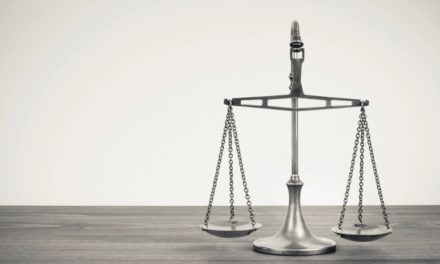On September 9, 2020, I published blog # 215 on this site with the then timely title—The Ethics of Voting. That blog was intended for writers and voters in the 2020 Election cycle. Now we’re approaching the 2024 Election cycle. A cycle is an interval of time in which a series of events occur that “regularly and usually lead back to a starting point.”[1] There is an alternate definition of cycle; “one complete performance of a vibration, electric oscillation, or current alternation.”[2] I fear the 2024 presidential election will jolt, vibrate, electrify, oscillate, and alternate an already divided nation. In most presidential elections the winner wins, and the loser congratulates. In this one, we have to consider the possibility of another round of election denying, false claims of stolen votes, and an altogether undisciplined display of bad manners and demonizing.
In my 2020 blog, I asked readers to think about the “ethics” of voting because the word “ethics” had little context or meaning in elections. That naturally led to the second question, whether voting had anything to do with “writing.” I did that because this is a blog about the ethics of writing. I reminded readers that voting is done in writing. You cannot vote orally. You cannot vote by sign language, singing, signaling with flags, or tapping a key on a telegram transmitter. You have to fill in a blank square on a written ballot. That’s voting. There are well-defined ethical standards and imperatives for writing and voting.
The Stanford Encyclopedia of Philosophy focuses on six major questions about the rationality and morality of voting. “(1) Is it rational for an individual citizen to vote? (2) Is there a moral duty to vote? (3) Are there moral obligations regarding how citizens vote? (4) Is it justifiable for governments to compel citizens to vote? (5) Is it permissible to buy, trade, and sell votes? (6) Who ought to have the right to vote, and should every citizen have an equal vote?”[3]
Since this is a blog, not an essay or a long op-ed, I will limit the ethical assessment to whether there is, in 2024, still a “moral” duty to vote. One way to think about voting rights is to reflect momentarily on human rights. If we have the right to vote, is that a human right, or something a political party has the right to control, reduce, or whine about?
Human Rights Watch puts it this way. “In every election, human rights matter. From local school board elections to presidential elections, voters have the chance to choose candidates who will fight for all people’s human rights, not work to undermine them. Candidates should put basic human rights front and center. And voters should insist on it, in the questions they put to candidates on the stump and in the choices they make at the ballot box.”[4]
The Republican party’s website for the 2024 campaign says, “President Donald J. Trump is committed to dismantling the deep state and restoring government by the People, just as he did during his administration. President Trump will conduct a top-to-bottom overhaul of the federal bureaucracies to clean out the rot and corruption of Washington D.C. President Trump will push for a constitutional amendment to impose term limits on members of Congress, a permanent ban on taxpayer funding of campaigns, a lifetime ban on lobbying by former members of Congress and cabinet members, and a ban on members of Congress trading stocks with insider information.”[5]
The Democratic Party’s website for the 2024 campaign says, “[President] Biden’s campaign has highlighted the work of his administration, including the creation of new jobs, the passage of the Infrastructure Investment and Jobs Act of 2021, and the United States Chips and Science Act, and the provisions of the Inflation Reduction Act of 2022 that addressed climate change and allowed Medicare to negotiate prescription drug prices. . . [He will] work to make childcare and elder care more accessible, protect Social Security and Medicare, enact a minimum tax for billionaires, codify the right to abortion, ban assault weapons, and support voting rights.”[6]
One candidate hopes to “clean out the rot and corruption of Washington D.C. . . . impose term limits on members of Congress, [enact a permanent ban on taxpayer funding of campaigns, a lifetime ban on lobbying by former members of Congress and cabinet members, and a ban on members of Congress trading stocks with insider information.”[7]
Apparently, 2024 voters will face whether human rights include voting or whether bans should come with the right of office. One goal is grounded in ethics and the other in retribution.
The American Ethical Union will restore ethics in the upcoming 2024 election. They said, “Voting Rights and Civic Engagement is our Ethical Action focus for 2024, and we are asking for your help with mobilizing voter registration and engagement campaigns in the coming months. With so many important issues at stake, we have both the opportunity and duty to translate ethical values into an informed vote. We encourage you to cast your ballot and help others near and far do the same.”[8] That translation may be difficult given the harsh difference in hoped-for outcomes in the upcoming presidential election.
Ethics in voting is embedded in how the law and the courts treat the 2024 election. NPR recently identified three significant legal arguments that will be part of the upcoming run-up to the election. “The Voting Rights Act had a roller-coaster year in the courts in 2023, and legal challenges to the landmark law are set to continue this year. In ongoing redistricting lawsuits mainly across the South, Republican state officials have been raising novel arguments that threaten to erode a key set of protections against racial discrimination in the election process. While critics have been challenging what the Justice Department has called “the most successful piece of civil rights legislation ever adopted by the United States Congress” since shortly after it was first enacted in 1965, many voting rights experts say the Supreme Court’s current conservative supermajority has inspired new legal strategies.”[9]
The American Law Institute held its Annual Meeting on May 24, 2024. That meeting resulted in a bipartisan working group’s presentation of the new “Ethical Standards for Election Administration.” The long report is foundational. Here is the essence of what they tried to do. “In our work, we found that many states had ethical standards in place, but many did not. Yet, everyone we spoke to told us that they would welcome input from a document like this one. Having a set of ethical principles, that all use the same language and require the same moral compass will help assure our voters that our elections are conducted fairly. This shared language will also help election officials when they need to speak to explain any portion of the election process to the public.”[10]
Once upon a time, in 1965, America stood for ethics in voting. But it fell victim to conservative politics. The Brennan Center for Justice explains how SCOTUS eviscerated it.
“Regarded as the legislative crown jewel of the civil rights era, the Voting Rights Act was enacted as a comprehensive tool meant to undo the political hold of Jim Crow policies in the South and related discriminatory structures nationwide. Congress adopted the law to ensure that states followed the 15th Amendment’s guarantee that the right to vote not be denied because of race. The law fundamentally opened political opportunities for Black and brown communities to participate in all aspects of the political system on an equal basis. The Voting Rights Act has been a constant target of conservatives on the Supreme Court since its enactment. While the law has been renewed multiple times, the Court’s decisions in recent years have often worked to limit its application. Of greatest concern is the 2013 case, Shelby County v. Holder, which effectively eliminated the use of preclearance. Following the decision, states that no longer had to get federal approval of new voting rules unleashed a wave of policies that made it harder to vote.”[11]
Democracydocket.com, flashed this headline last year. “Republicans Want to Make It Harder To Vote and Easier To Cheat.” The article said, “In 2008, former President Barack Obama received more than 9.5 million more votes than then-U.S. Sen. John McCain (R-Ariz.). In 2012, he bested Mitt Romney by nearly five million votes. Former President Donald Trump lost the popular vote by 2.8 million in 2016 and by seven million in 2020. Unable to attract the support of a majority of eligible voters, Republicans are left to try to rig the voting rules and exploit election loopholes. Put simply, to ensure their electoral survival, Republicans need to make it harder to vote and easier to cheat.”[12]
FiveThirtyEight reported in July 2023; 16 States Made It Harder To Vote this Year, But 26 Made It Easier. “Driven by many Republicans’ false belief that lax voting laws allowed the 2020 election to be stolen from former President Donald Trump, 2021 was a record-breaking year for voting restrictions. According to data from the Voting Rights Lab, a pro-voting-rights organization that tracks election-law legislation, state legislators introduced 566 bills restricting voter access or election administration that year, 53 of which were enacted. This year hasn’t been quite so busy, but as of July 21, 366 laws with voting restrictions had been proposed and 29 had been enacted.” [13]
It’s certain that restrictive voting laws will implicate the 2024 presidential election. The debate is how to balance conservative views against voters and liberal views for voters—all voters, everywhere. The most recent assessment should make all voters wary. “Voting laws in 2024 are largely more restrictive than in 2020. Between October 2022 and October 2023, at least 881 laws were introduced in state legislatures to interfere in elections or restrict the right to vote. While 2020 was a watershed moment for improving voter access through vote-by-mail, at least 11 new laws enacted in 2023 reduced its use, such as a Nebraska law that requires voters without a Nebraska driver’s license or state ID to provide a copy of their photo ID with their ballot.”[14]
Human Rights Watch puts it this way. “In every election, human rights matter. From local school board elections to presidential elections, voters have the chance to choose candidates who will fight for all people’s human rights, not work to undermine them. Candidates should put basic human rights front and center. And voters should insist on it, in the questions they put to candidates on the stump and in the choices they make at the ballot.”[15]
Some newly enacted laws allow state interference in elections. Texas’ SB 1 lets local officials directly intervene in elections held in Harris County, one of the most populated and diverse counties in the state. Georgia’s SB 202 allows a state elections board to replace county elections boards after a performance review, potentially paving the way for elections to be decertified if state officials are displeased with county results.[16]
At the same time, some states have adopted expansive voting laws that make it easier to vote by mail, register to vote, and vote early. At least one expansive bill was introduced in every state in 2023, and over 1,200 expansive voting bills were introduced between January 2022 and October 2023. Many states like Oregon and New York that have enacted these laws are led by Democrats. However, red states like Utah and Louisiana have also enacted laws that made voting easier––often coupled with other restrictive laws that make voting more challenging.
This blog is about the ethics of voting and writing about voting. From an ethical perspective, the 2024 election poses new challenges to ethical voting and the inherent moral obligations of exercising the right to vote. The important issue from an ethical perspective is human rights. They ought not to vary among states, but they do.
If our divided politics continue to ignore human rights as our most important ethical imperative, we will get closer to an authoritarian form of government and further away from democracy. If that happens morality and ethics become vague memories and good writing will be reduced to texting.
[1] https://www.merriam-webster.com/dictionary/cycle
[2] https://www.merriam-webster.com/dictionary/cycle
[3] https://plato.stanford.edu/entries/voting/
[4] https://www.hrw.org/news/2024/02/07/human-rights-guide-2024-us-elections
[5] https://ballotpedia.org/2024_presidential_candidates_on_government_ethics
[6] https://ballotpedia.org/Joe_Biden_presidential_campaign,_2024
[7] Ibid.
[8] https://aeu.org/2024/02/aeu-get-out-the-vote-aeugotv/
[9] https://www.npr.org/2024/01/06/1222875311/voting-rights-act-section-2
[10] https://www.ali.org/news/articles/bipartisan-working-group-issues-ethical-standards-election-administration/
[11] https://www.brennancenter.org/our-work/research-reports/voting-rights-act-explained
[12] https://www.democracydocket.com/opinion/republicans-want-to-make-it-harder-to-vote-and-easier-to-cheat
[13] https://fivethirtyeight.com/features/16-states-made-it-harder-to-vote-this-year-but-26-made-it-easier/
[14] https://prismreports.org/2024/01/17/restrictive-voting-laws-2024-presidential-election/
[15] https://www.hrw.org/news/2024/02/07/human-rights-guide-2024-us-elections
[16] https://prismreports.org/2024/01/17/restrictive-voting-laws-2024-presidential-election/

I am an author and a part-time lawyer with a focus on ethics and professional discipline. I teach creative writing and ethics to law students at Arizona State University. Read my bio.
If you have an important story you want told, you can commission me to write it for you. Learn how.






 I am an author and a part-time lawyer with a focus on ethics and professional discipline. I teach creative writing and ethics to law students at Arizona State University.
I am an author and a part-time lawyer with a focus on ethics and professional discipline. I teach creative writing and ethics to law students at Arizona State University.  My latest novel is Hide & Be.
My latest novel is Hide & Be.  If you have an important story you want told, you can commission me to write it for you.
If you have an important story you want told, you can commission me to write it for you.